Mastersizer range
The smartest way to measure particle size
Flour analysis is a critical process in the milling, baking, and food production industries, where consistency and quality are essential. By analyzing key characteristics of flour, including particle size, shape, moisture, and composition, manufacturers can predict how flour will behave in various applications, from dough handling to baking.
Effective flour quality analysis helps producers maintain consistent texture, flavor, and performance, ensuring that flour meets specific industry standards and consumer expectations.
In today’s competitive food industry, achieving this level of quality control is vital for building trust and ensuring satisfaction across a range of flour-based products.
Malvern Panalytical is at the forefront of innovation in material characterization, offering cutting-edge tools that meet the specific demands of flour and food analysis.
Our solutions are trusted by milling and food production facilities worldwide to provide rapid, accurate insights into flour quality, empowering teams to make data-driven adjustments in their production processes.
Our comprehensive NIR solutions for flour & milling analysis, along with other advanced tools, offer in-depth analysis of particle size, shape, and chemical composition. This suite of tools enables manufacturers to monitor and optimize their processes efficiently, reducing waste and improving consistency and compliance in product quality.
Our product lineup includes the Mastersizer 3000+ range for precise particle size distribution, the Morphologi range for detailed particle shape analysis, and the ASD LabSpec range for near-infrared (NIR) composition analysis. Together, these instruments form a complete solution that allows producers to monitor flour’s physical and chemical properties closely.
With Malvern Panalytical, customers gain a trusted partner dedicated to elevating flour quality analysis, making it easier to meet regulatory standards, improve operational efficiency, and ensure product excellence across every batch.
The smartest way to measure particle size
The Mastersizer 3000+ range employs advanced laser diffraction technology to measure particle size distribution with exceptional accuracy and speed.
In flour production, particle size distribution is a key factor that influences texture, hydration, and blending behavior. Mastersizer instruments provide highly detailed insights into the size of flour particles, which allows manufacturers to maintain consistency in both raw flour and finished products.
The Mastersizer 3000+ range’s precise measurement capabilities enable flour producers to monitor and control milling and blending processes effectively, helping to standardize texture and performance in various applications. This precision helps to minimize variability in flour batches, reducing product rejections and improving overall production efficiency. Mastersizer instruments also support fast, repeatable measurements, allowing quality control teams to make timely adjustments, which can reduce milling costs and improve output consistency.
Widely used in flour milling and quality control laboratories, the Mastersizer 3000+ range is ideal for monitoring the efficiency of milling processes and optimizing particle size for specific flour grades. By ensuring particle size meets the desired standards, the Mastersizer 3000+ range supports the creation of consistent flour products suitable for a range of end-use applications, from everyday baking flours to specialty flours for artisanal products. The size/proportions of starches' A and B forms can be determined using the Mastersizer.
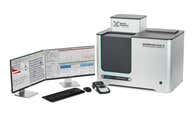
Automated imaging for advanced particle characterization
The Morphologi range provides in-depth particle shape analysis through advanced imaging technology. In flour production, understanding particle shape - beyond just size - plays a crucial role in determining how flour will behave in dough formation, flowability, and packing density. The Morphologi range captures detailed morphological data that allows manufacturers to assess flour’s structural properties with precision, supporting quality control at a granular level.
With the Morphologi range, manufacturers gain insights into the unique shape characteristics of flour particles that impact handling and final product quality. For instance, particle shape affects how flour blends with other ingredients, how it flows in automated production lines, and ultimately, how it performs in baking. By ensuring consistency in particle shape, manufacturers can produce flour that consistently meets performance expectations, reducing waste and ensuring reliable dough behavior.
Ideal for use in research and quality control labs, the Morphologi range helps flour producers assess flour properties crucial for specific applications, from standard bread flours to specialized flours for pastries, gluten-free products, or high-fiber applications. It’s particularly valuable for product development, enabling manufacturers to fine-tune particle morphology for optimal dough texture, elasticity, and baking properties.
Starch is the major component of wheat flour and serves several functions, including gelatinization, swelling and pasting of the dough, which is related to the proportion of A and B-type grains]. Further, the composition of each grain type is also different, leading to different rates of digestion and hence different glycemic indices. These properties can be adjusted by controlling the relative ratio of A and B-type starch grains. The proportions A and B type starches can be picked up by Morphologi or Mastersizer as they have different sizes.
The starch, starch protein complex, and protein levels in flour can be examined using the Morphologi 4 ID, this can be particularly helpful when looking at gluten levels and gluten-free alternatives.
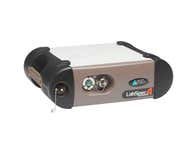
Laboratory Instrumentation for Qualitative and Quantitative Materials Analy...
The ASD LabSpec range utilizes near-infrared (NIR) spectroscopy to conduct non-destructive, rapid analysis of flour’s chemical composition. Key compositional factors like protein, moisture, and starch content are essential for determining both the nutritional value and functional properties of flour. LabSpec instruments provide real-time compositional data, enabling manufacturers to make quick adjustments in milling and blending processes to ensure flour meets both quality and regulatory standards.
NIR spectroscopy with the LabSpec range offers fast, accurate, and non-destructive analysis, making it an invaluable tool for monitoring critical flour components that impact product consistency. By analyzing protein and moisture levels, the ASD LabSpec range helps quality control teams detect variations in nutritional and functional attributes, making it easier to meet standards for texture, shelf stability, and nutrient composition. Real-time composition analysis also allows producers to optimize formulations quickly, reducing waste and maintaining a consistent product.
The LabSpec range is widely used in quality assurance for wheat flour nutritional analysis, helping producers control parameters essential for end-use performance and consumer satisfaction. It’s especially valuable for applications where precise protein content and moisture levels are critical, such as in flours intended for baking, pastry production, or specialty health products. LabSpec’s NIR capabilities help producers meet nutritional labeling requirements and provide data-driven adjustments in product formulations for diverse markets.
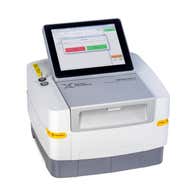
Small, powerful and portable XRF analyzer
The Epsilon 1 is a compact, benchtop X-ray fluorescence (XRF) spectrometer designed for the analysis of micronutrient levels in flour and whole grain samples. Its small footprint and user-friendly interface make it an ideal solution for laboratories and production facilities requiring fast, reliable elemental analysis without the complexity of more advanced techniques.
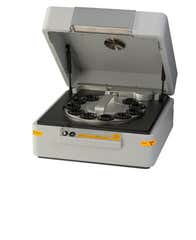
Fast and accurate at-line elemental analysis
The Epsilon 4 is a high-performance XRF analyzer designed for more complex and demanding elemental analysis in flour and grain samples. With advanced detection capabilities and faster processing speeds, it provides even greater accuracy and throughput, making it suitable for laboratories requiring detailed and precise data.
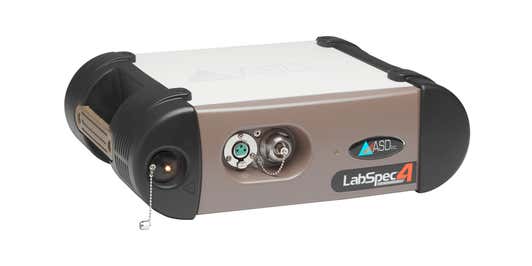
Malvern Panalytical is a recognized leader in material and food analysis, trusted worldwide for our dedication to innovation, accuracy, and reliability. With a legacy rooted in scientific advancement, we continue to pioneer technologies that shape the field of flour analysis.
Our commitment to providing precise, efficient, and easy-to-use instrumentation has helped flour producers, food scientists, and quality control teams optimize their products and processes.
By choosing Malvern Panalytical, customers gain access to our wealth of experience in developing solutions tailored to the unique challenges of the flour and food industries, ensuring that every analysis delivers actionable insights.
